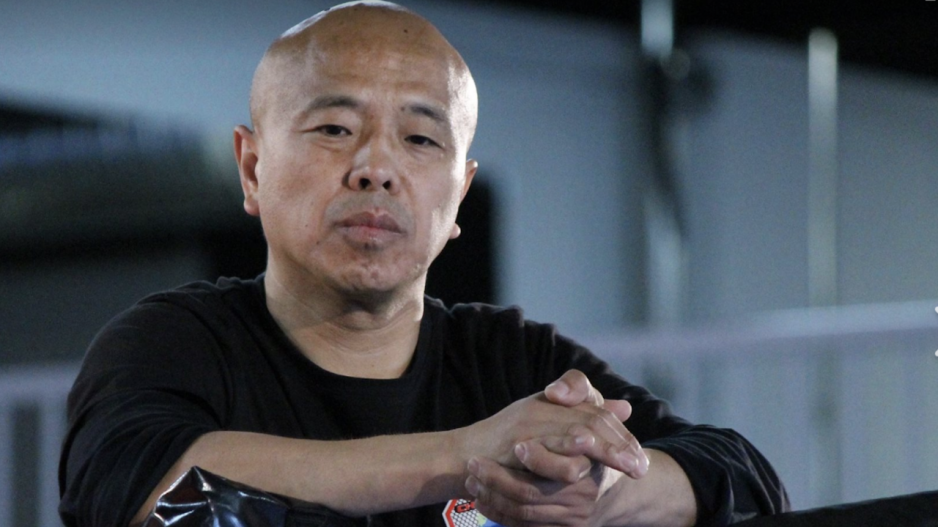Premier David Eby says he is not waiting for action from the federal government to continue his ongoing battle against money laundering in B.C.
On Wednesday, shortly after Eby’s health-care funding photo op with Prime Minister Justin Trudeau, the BC Prosecution Service announced that a special prosecutor – secretly appointed almost a year ago – decided not to charge Paul King Jin for money laundering and other 2017 offences. It brought a screeching halt to one of the biggest investigations in the Combined Forces Special Enforcement Unit’s history.
Eby had used his power as attorney general in November 2021 to order Assistant Deputy Attorney General Peter Juk to retain a special prosecutor after Crown counsel earlier concluded that the case against Jin would not likely result in a conviction. Eby said he believed prosecution was in the public interest.
However, special prosecutor Chris Considine reached the same conclusion about the case, code named E-Nationalize. Considine blamed gaps in the federal Proceeds of Crime (Money Laundering) and Terrorist Financing Act and the absence of a link between Jin’s cash and true criminal activity, as opposed to unlicensed activity.
“Regrettably, the challenge of proving a viable predicate offence, given the wording of the current legislation, combined with the complexity of an enormous data set in a foreign language [Mandarin], have conspired to make the prospects for conviction poor, despite the best efforts of many dedicated officers,” Considine concluded in his Wednesday-released report.
Eby did not respond to a direct request for comment, but referred it to press secretary Jimmy Smith, who delivered a prepared statement late Wednesday afternoon.
“In relation to this case, the attorney general [Niki Sharma] has received the recommendations made by the special prosecutor and I join her in thanking the B.C. Prosecution Service for their diligent work,” said Eby’s statement. “Our government remains committed to working with the federal government to ensure federal law can properly respond to the challenge of money laundering.
“We support [Considine’s] recommendation that propose changes to the criminal code to expand the tools available for prosecutors to successful convict money launderers but we are not simply going to wait for federal action. In the coming months, we will be tabling legislation that will allow the seizure of property and luxury cars that are likely the result of proceeds of crime and corruption.”
The province isn’t finished alleging that Jin has benefited from the proceeds of crime. Last summer, a fourth civil forfeiture action was launched against Jin in B.C. Supreme Court, aimed at seizure of Jin’s real estate.
The province may be in a better position to succeed under a lower burden of proof after last month’s Court of Appeal decision in the Director of Civil Forfeiture’s watershed quest to seize three Hells Angels clubhouses in East Vancouver, Nanaimo and Kelowna.
The appeal tribunal ruled that the clubhouses “constituted instruments of unlawful activity” and are subject to forfeiture. The verdict overturned a 2020 B.C. Supreme Court decision by a judge who said there was not enough evidence the clubhouses were used for criminal activity.
Nonetheless, Considine’s decision is politically embarrassing in the wake of the nearly $19 million Cullen Commission public inquiry into money laundering. Commissioner Austin Cullen had focused heavily on Jin’s casino and real estate exploits in his final report and called E-Nationalize “a groundbreaking investigation into a sophisticated money laundering operation.”
Cullen had granted Jin’s lawyer, Greg DelBigio, participant status to question witnesses at the public inquiry. But the commission lawyers never called Jin to testify.
A related investigation, which also involved Jin, was called E-Pirate and it began in February 2015. Caixuan Qin and Jian Jun Zhu, the two principals of a Richmond underground bank called Silver International, were set to stand trial, but the charges against them were stayed in November 2018 after errant disclosure of a police informant’s name.
Zhu was murdered in a Richmond sushi restaurant in September 2020 while seated next to Jin. Jin survived his injuries. Yuexi “Alex” Lei and Richard Charles Reed were charged with first-degree murder.
Cullen’s final reported, published June 15, made more than 100 recommendations. In October, the province replaced the Mortgage Brokers Act with new regulations for brokers, lenders and administrators, giving new licensing powers to the B.C. Financial Services Authority.
Little else has happened. Two of the marquee recommendations were to hire an anti-money laundering commissioner and create a dedicated, provincial money laundering intelligence and investigation unit.
During the six years after E-Nationalize was announced, Jin’s case also took a few plot twists that were politically embarrassing to the NDP.
Tourism, Art, Culture and Sport Minister Lisa Beare announced kickboxing deregulation in August 2019 in, of all places, Jin’s Richmond boxing and mixed martial business, World Champion Gym. She posed for a group photo with Jin and his wife, Xiaoqi Wei, and appeared surprised when a reporter pointed out Jin.
“This was a venue chosen through the athletic commissioner’s office as a possible venue, and that [Jin’s ownership and attendance] is news to me,” Beare said.
Pursued by a reporter, Jin tried to refer questions to his lawyer, but eventually relented. “Nobody who charged me, nothing, four years already. I work hard and teach young people to work hard in Canada,” Jin said.
In July 2020, the Ministry of Public Safety and Solicitor General licensed Blackcore Security and Investigations, a new company co-founded by Jin’s son, Jesse Xin Jia. Blackcore’s address was the same as World Champion Gym.
The next month, the Director of Civil Forfeiture filed a lawsuit to seize the gym, calling Jin the true owner of Warrior Fighting Dream Ltd., which bought the property at No. 5 and Dyke roads in June 2016. Blackcore quietly closed later in 2020.



